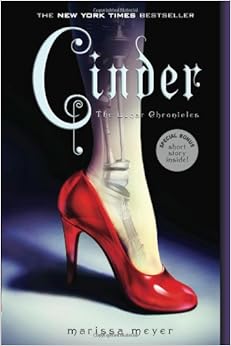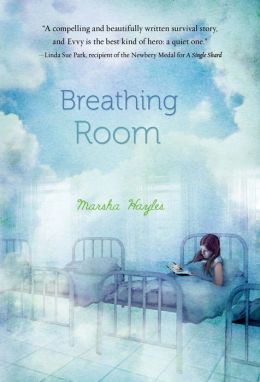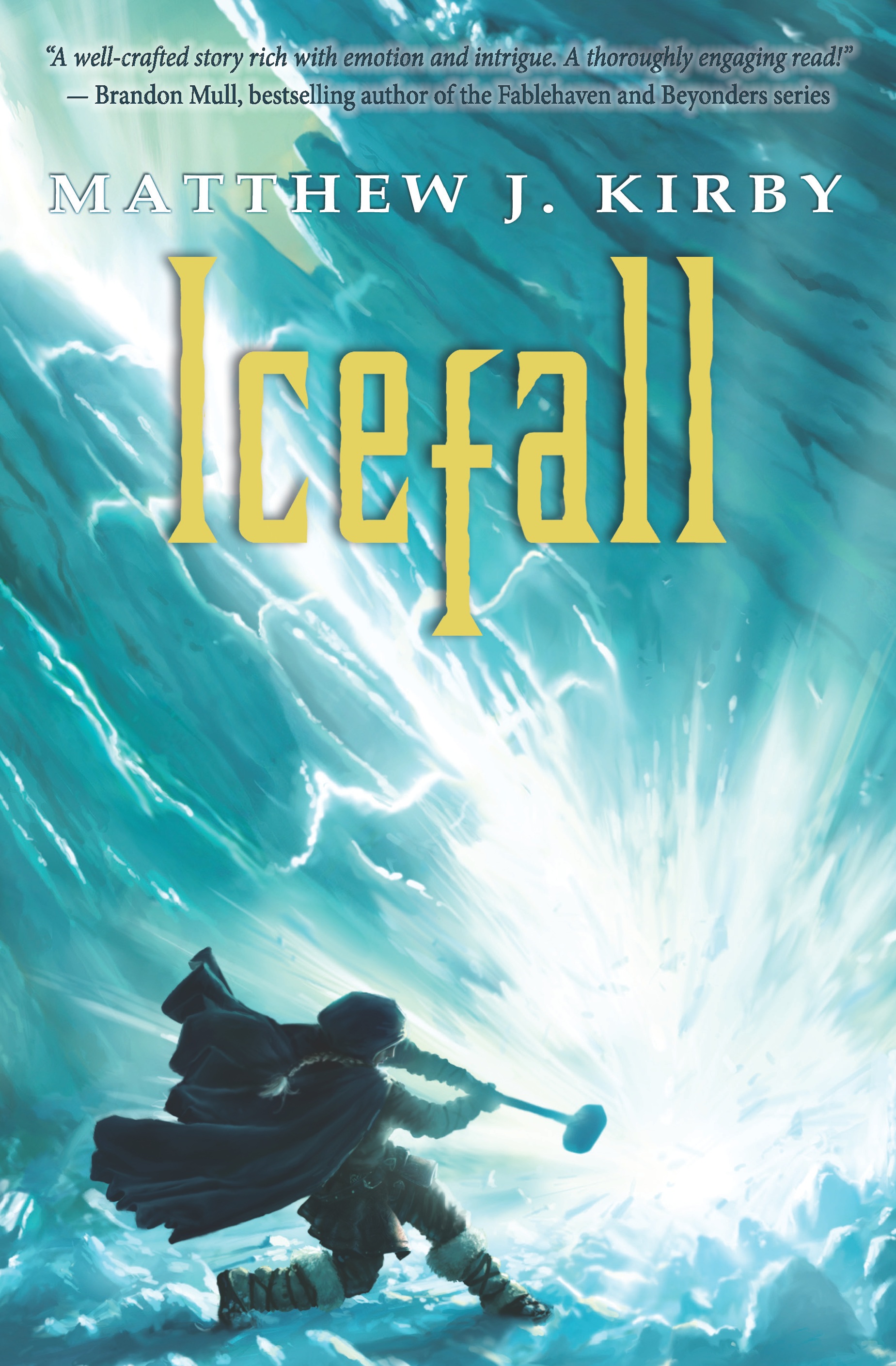I finished with the Maud Hart Lovelace books about a week ago. Let's jump into talking about the last four books and be done with this little project.
I really was pretty impressed by Marissa Meyer's Cinder. Sadly, I'm having a hard time remembering exactly why...that's probably not a great sign.
Okay. I can do this. First, the story frequently zigged where I thought it would zag. I mean, the broad strokes were easy to call - of course Prince Kai would fall for Cinder, of course Cinder is the missing Lunar princess, etc. But for a spin on Cinderella, the story doesn't ever follow the map most of us would be following (that of the Disney movie, of course). The world-building is good, Cinder is a pretty enjoyable character, and so on. All that said, a lot of what I read fell right out of my head when I put the book down and moved on. So.
Trent Reedy's Words in the Dust was another book where I failed at predicting what was coming. Which, in hindsight, was rather unfortunate; the end caught me entirely off-guard. But let's start at the beginning. I appreciated the fact that Zulaikha's education was given the same weight as fixing her cleft lip. I liked the (presumably authentic?) glimpses of Afghani culture. I liked the relationship between the sisters. But the end.
Look, I think it's important to talk about the way women around the world are treated by men and I totally believe that what happened to Zeynab has happened to young girls. But the way it went down just doesn't sit right with me as I reflect on it. I mean, the parallels made between Zulaikha's repaired lip and Zeynab's severe burns that split her lip open...it bugs me. I'm not sure exactly why. Also, the descriptions of her injuries were brutal. And again, this is a necessary conversation. It just seemed like Reedy maybe tried to do a little too much. Or something. I don't know. There's something I can't quite put my finger on that left a bad taste in my mouth.
Speaking of which, we have finally found my least favorite book in the bunch. So congratulations, Ghost Dog Secrets. I almost abandoned this book very early on, about the time a sixth-grade student says something about dogs not receiving "proper veterinary care" (or something equally stilted that would never come out of the mouth of a sixth grader). It got slightly better. But not a lot.
Let's talk about, for instance, the way Rusty's class learned about how to identify a meth lab (what?!) shortly before he did just that (by the ammonia smell, because of course he did). Or the pedantic descriptions of how Rusty goes to the library to research ghosts after seeing the titular ghost dog (that said, it did lead to a reference to the movie Ghost Dog: Way of the Samurai, so that's kind of entertaining). Or Rusty's game with his friend where they come up with alliterative groups of words that they describe as "threesomes" (again, what?! and they are dumb). Anyway, my students dig Peg Kehret's books and heaven knows, everyone loves dogs (and abusing dogs is clearly the worst thing you can do), so I'm sure there are kids that will like this one. But I am solidly not in that camp.
Which brings us to the final book: Margi Preus's Heart of a Samurai. Very good. It reminded me, inevitably, of Moby Dick, which I mean as a compliment. I love that it's based on a true story - what a life! The descriptions of Manjiro's time at sea were my favorite and I appreciated the lack of closure or truly happy endings; he was never really at home anywhere, which seemed incredibly honest.
Not much to say about this one, I'm sad to say. It's a lot easier to talk about the bad stuff and I have little to complain about with Heart of a Samurai. Outside of maybe wishing Preus had found a way to work in something about how the whaling industry decimated (and continues to harm) worldwide whale populations, though I acknowledge that would probably be rather awkward.
So here we are. Since this is a competition (which I can't actually participate in), it seems proper to close with a ranking (based on how I feel right now; it seems important to note that 2-6 and 7-11 could probably be ties and could certainly jump around depending on the day - the only two I'm sure of are my top and bottom). So, from worst to best...
12. Ghost Dog Secrets by Peg Kehret
11. Wild Life by Cynthia DeFelice
10. Words in the Dust by Trent Reedy
9. Chomp by Carl Hiaasen
8. My Life as a Book by Janet Tashjian
7. Breathing Room by Marsha Hayles
6. Cinder by Marissa Meyer
5. Heart of a Samurai by Margi Preus
4. Liar and Spy by Rebecca Stead
3. The False Prince by Jennifer A. Nielsen
2. Belly Up by Stuart Gibbs
1. Icefall by Matthew J. Kirby
Sunday, September 28, 2014
Monday, September 8, 2014
Maud Hart Lovelace, part 2, or, I remembered!
First, Stuart Gibbs' Belly Up. At the moment, I think this is my favorite of the MHL books. It's very funny - I laughed out loud when Theo, the narrator, armed zoo chimps with water balloons to throw at zoo visitors (who, to be fair, started it), then explained when chastised that, sans water balloons, they would have thrown feces. Also hilarious - the climactic chase scene, which culminates in a hippo coffin falling from a crane, with the dead hippo inside exploding all over a crowd of mourners. Good stuff. The mystery is also appropriately mysterious, although I would have appreciated some clues dropped along the way. My only real problem is the way this book (and Chomp, which I'll be getting to) depict overweight people as inherently stupid and slow. Obesity does not go hand in hand with stupidity and it's irresponsible to teach kids that it does.
Next up, Marsha Hayles' Breathing Room, a historical fiction set in a Minnesota TB sanitarium during World War II. I am always partial to books set in Minnesota, so this book had that going for it. I also appreciate when authors don't shy away from the gravity of a situation and, in killing off quite a few primary supporting characters, Hayles certainly checks this box. That said, I didn't find Breathing Room to be terribly memorable (it's middle grade historical fiction - it's fine) and I found the rather awkward insertion of a Jewish character to be rather heavy-handed. Of course, what do I know? I overheard a couple of 7th graders talking about this book and both proclaimed it to be "awesome."
Matthew Kirby's Icefall was a story I really liked. I loved the discussion about the power of stories that was threaded throughout the book. Solveig talks about using words and stories as weapons and medicine, to give hope and take it away... in that and in the way it showed, obliquely, how myths are born from truth, it reminded me a little of Watership Down. I also really liked the way the traditional Norse myths were incorporated. I've always liked Norse mythology, but it is so frequently overshadowed by Greek and Roman, so it was nice to see it take a starring role. I loved the relationship Kirby built between Solveig and Hake, Asa's betrayal caught me off-guard, and Alric's sacrifice gave me chills. My only real complaint is one I also had for Belly Up - I want these mysteries to drop a few subtle clues. I don't need to be able to solve it ahead of time, but I love looking back at mysteries and seeing the breadcrumbs.
Finally, Carl Hiaasen's Chomp. Unexpectedly exciting, even if I rolled my eyes a bit at the coincidence of Wahoo's group, Derek Badger, and Mickey Cray and that drunken idiot all winding up on the same island. But let's back up. Given what we would have been learning about Bear Grylls about the time Chomp came out, I'd say this is a pretty good takedown of reality television survivalists. Derek Badger is cartoonish, but probably not far off from a lot of reality stars. Unrelated, I appreciated Tuna's arc. As I said above, the thing I had a problem with was the depiction of obesity. Derek's overeating is emblematic of his many character flaws; likewise for Sickler. Hiaasen, like Gibbs, uses being overweight as shorthand for being inept, selfish, and stupid.
Next time, the final four: Cinder, Ghost Dog Secrets, Words in the Dust, and Heart of a Samurai.
Subscribe to:
Comments (Atom)






